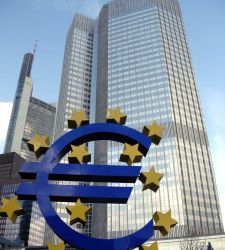
The European Central Bank (ECB) went nineteen weeks without buying national debt from Eurozone countries. But this streak ended recently. The institution presided by Jean-Claude Trichet stated on August 6 that it would show compassion for peripheral European countries and purchase bonds, principally those originating in Spain and Italy, where yields on ten-year notes had risen to a dangerous 6% level. The exact quantity of the deals was unknown, until yesterday.
The ECB stated that last week it purchased a total of 22 billion euros in European sovereign debt. This figure exceeds consensus analyst expectations (15 billion euros) announced by Bloomberg. It also marks the single highest weekly purchase since the ECB began a program for purchasing sovereign debt in May of 2010, just after Greece asked the EU for a bailout for the first time. At that time, the ECB purchased 16.5 billion euros in bonds. Adding last week?s purchase, the BCE owns more than 99 billion euros in these notes. A high figure, but far below the 600 billion dollars that the United States Federal Reserve (Fed) has purchased from Washington.
Although the BCE has not specified what countries it bought debt from, analysts agree that Spain and Italy, the most precarious economies right now, were involved in the majority of the acquisitions. In fact, the BCE?s interventions in the sovereign debt markets can explain the spread fluctuations between Spanish, Italian and German bonds. So, the Spanish risk premium has dropped from 369 basis points to 266 points in less than a week. For its part, the Italian risk premium has receded to 270 basis points from last week?s mark of 373 basis points. The differences are justified thanks to the drop in profitability in Spanish and Italian bonds, which yesterday closed at 4.99% and 5.03%, respectively.